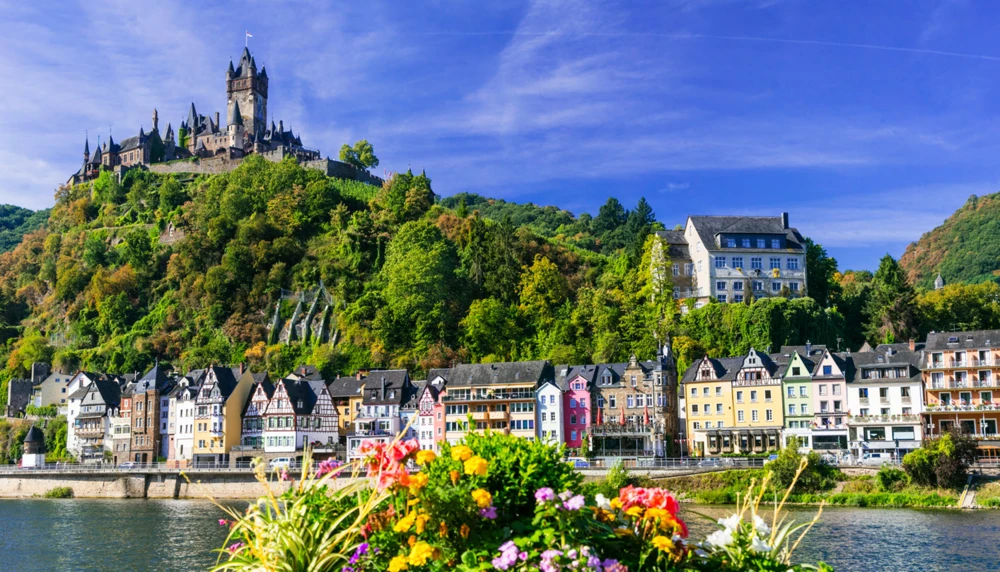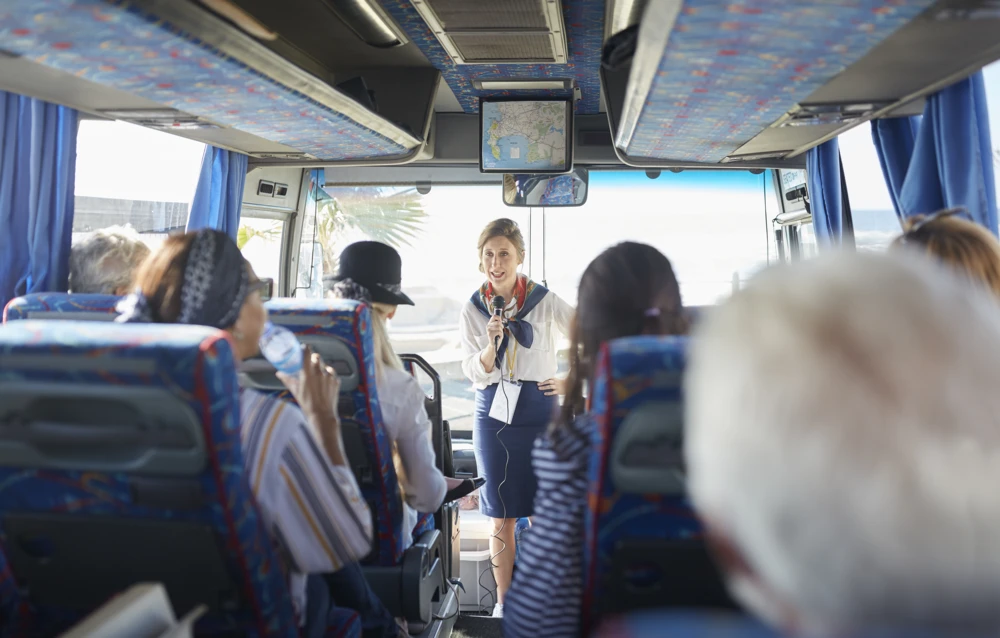1. Time your visit for off-season or shoulder season
For busy destinations, “it’s better to go in a shoulder season or an off-season if you can,” Honey says. Summer is the peak season, as students are out of school and the weather is sunnier. Planning a trip for the shoulder season, such as in April or September, can reduce the crowds you’ll deal with and bring business to the destination during a quieter time. An added benefit is that it’s usually less expensive, so it’s a good way to save money, too. i-stock / Freeartist
i-stock / Freeartist
2. Consider a similar, lesser-known alternative
The most crowded destinations get that way because they offer unique attractions; there’s only one place to see the Eiffel Tower and the Mona Lisa, after all. But Honey says with a little research, you can find plenty of overlooked spots with similar experiences, and that these will become increasingly popular. “I think more and more we’re going to see the development of websites, apps and other tools that are telling people, ‘Go to this small town, which is similar to Barcelona but doesn’t have the crowds.’ “ She points to a recent Washington Post article that suggested travelers pass on Machu Picchu in favor of the lesser-known but much larger Inca ruins at Choquequirao, and trade the crowds in Rome for the Imperial Roman history of Turin, among other substitutions.
3. Stay at a locally owned and operated hotel
Honey recommends booking a local hotel instead of a short-term rental such as Airbnb. “One of the ideas of responsible travel is to try to keep as much of the money in the local economy as possible,” she says.
Airbnb and other short-term rentals may be run by locals, but Honey says that’s not always the case: “Oftentimes they’re essentially using the guise of the sharing economy to create a hotel without paying all the taxes and hiring as many people as a hotel would, getting the licenses, etc.” She notes that in many places, such as the Hawaiian island of Oʻahu, Airbnbs operate despite local laws that explicitly bar them. Since it’s hard to suss out which short-term rentals are playing by the rules, travelers may be better off avoiding them.
“A good locally owned hotel is the best option,” Honey says. She advises researching the hotel’s reputation, seeing if it’s been certified as eco-conscious or sustainable and checking if it takes part in community outreach. iStockphoto.com / Django
iStockphoto.com / Django
4. Buy and hire local as much as possible
As with hotels, many very popular destinations draw in imported souvenirs, food and workers to capitalize on the crowds. Just as booking a locally owned hotel helps keep the benefits of your dollars in the local community, so too does buying local, eating local and hiring local tour guides. Many destinations require tour guides to obtain a license; make sure yours has one. It’s not just about altruism, either. “Part of really learning while you’re traveling is having good guides,” Honey says, and local naturalists, historians and other guides are best able to interpret the subject material, give insights into the local culture and share their real-life experiences.
5. Respect local resources by reducing waste
What you don’t use has an impact, too, according to Honey. “Water and electricity are oftentimes issues in urban areas, particularly water,” she says, “and there’s a real competition between what local people have and what tourists have and use. Try to not just leave the tap running.” Similarly, unless you’re visiting a place where tap water isn’t safe, Honey advises carrying a reusable water bottle and refilling it instead of buying bottled water. This cuts down on plastic waste that cities must deal with and reduces the pollution involved in creating and shipping bottled water. iStockphoto.com / dima_sidelnikov
iStockphoto.com / dima_sidelnikov
6. Be culturally sensitive
Before reaching your destination, research the culture and language. Honey recommends learning a few basic words in the local language so you can greet people and ask simple questions. Not only will it enrich your experience, it also demonstrates cultural respect. Read up on what’s expected from clothing; in some countries, women are expected to cover their ankles, elbows and shoulders. “We’re doing a project now in Oman. ... I have a whole separate wardrobe for when I’m working in Oman,” Honey says. This is especially true if you’ll be visiting religious sites like churches or mosques — make sure you don’t find yourself stuck outside because you wore shorts.
Cultural boundaries around photography aren’t the same everywhere. Before taking pictures of people, Honey says, be sure to ask permission — ”even if you think that they’re not looking.” Likewise, always ask permission before entering anyone’s home, and don’t trespass on private property. “Be very sensitive that these are living communities primarily for the residents who live there,” Honey says, “just like we wouldn’t want somebody tromping through our home neighborhood, peering in windows. Respect people’s livelihoods and daily lives.”
7. Seek out certified sustainable tour companies
“There are a growing number of websites that promote responsible tourism businesses,” Honey says. The Global Sustainable Tourism Council accredits and recognizes certification programs for tour companies, and travelers can look up the lists of these programs through the GSTC website. Examples include Rainforest Alliance and Earth Check. Companies that are certified by a GSTC-recognized or accredited body will display the certification logo on their websites and marketing materials. iStockphoto.com / martin-dm
iStockphoto.com / martin-dm
8. City-hop by car or train, not plane
Budget-oriented airlines make it affordable to plan a vacation itinerary hopping from city to city via short one-way flights, especially in Europe, but Honey advises travelers stick to a rule of thumb: “If a plane ride is an hour or less, don’t take the plane.” City-hopping by rental car, bus or train reduces your carbon footprint and also lets you see the countryside in between hot spots, giving you a fuller picture of the country. And given how much time it can take to arrive early at the airport, check in, go through security and then wait to board, traveling by land may not be any slower — a 3-hour train ride takes the same amount of time as a 1-hour flight that you arrive 2 hours early for.
9. If you’re not sure something is ethical, research it
Is it ethical to visit an elephant sanctuary? Should you still eat local food if it may be grown unsustainably? How aggressively should one haggle in countries where that’s the norm? What are the red flags that something that looks ethical might not be? If you’ve got questions like these, Honey says, there isn’t a single resource with every answer. (For one thing, not everybody agrees on what it means to be ethical and/or sustainable.) She recommends searching for media articles and other research pieces for each scenario. In some cases, such as with elephant sanctuaries, it may not be a question of “Is this ethical?” but rather, “Who does this ethically?” And since each traveler has their own personal beliefs, ultimately, it’s up to you what you’re comfortable with.